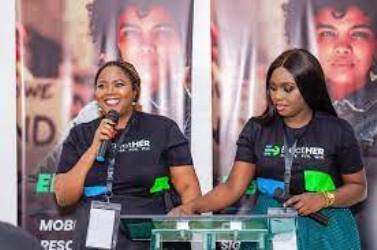The Problem
Nigeria remains the giant of Africa due to its landmass and population which currently stands at 214,568,727 out of which 106,866,000 are women. However, despite the numbers, the national average of women’s political participation stands at 6.7 percent in elective and appointive positions, which it is far below the global average of 22.5 per cent, Africa regional average of 23.4 percent and West African Sub Regional Average of 15 percent.
Nigeria currently ranks 181 out of 193 countries on the Gender Equality Index, and for countries with low women representation in governance due to several factors such as inequality derived from cultural and religious beliefs leading to poor resource allocation in the economic and social sectors, frequent conflicts, forced displacements and inadequate inclusion of women and girls’ perspectives in policy-making decisions. These equally led to the low representation of women in governance and politics, and the inadequate legal framework and limited capacity to support women’s empowerment and equality efforts.
(UN Women, 2020).
The under representation of Nigerian women in political participation gained root due to the patriarchal practice inherent in the society, much of which were obvious from pre-colonial era till date. And despite efforts to promote the contribution of women in the domain of politics and decision making, Nigerian women have continued to record low representation at all tiers and levels of governance even though they constitute almost half of the population and the greatest number of voters.
From 1999-2015, men constituted 94.2 per cent of the members of the National Assembly, leaving barely 6.8% to women representation. Researchers say statistics of women from 1999 to date both in governance, in politics and the way government has tailored their implementation of gender budget has totally been null and void, for a population with over 49.2 percent.
This poses a fundamental problem, calls for an urgent re-evaluation and cursory look at what government has done, is doing and will do. Given the several talks, initiatives, and policy directions of government, one would expect greater progress in Nigeria’s quest for increased women’s political participation. Unfortunately, the reverse is the case. At present, only 7.3 per cent (8 of 109) of Nigeria’s senators are women while only 3.6 per cent (13 of 360) of the members of the House of Representatives are women.
However, despite the low representation in the current parliament, the percentage of female candidates in the elections that produced the current lawmakers is higher than what obtains in the list for next year’s parliamentary elections. In 2019 12.3% of the senatorial candidates were women; three percentage (3%) points higher than the nine per cent (9%) for next year’s election, and 11.9 per cent of the House of Representatives candidates were women; which is only nine (9%) per cent for the 2023 election.
Currently, there are only 374 women out of the 4,223 candidates running for the 469 seats in the National Assembly: 109 in the Senate and 360 in the House of Representatives in the recently released INEC final list of candidates for 2023 elections.
A report said that there is no sense of duty to women’s inclusion at the community level. So, it seems there’s not enough effective implementation of policies at the grassroots rather, we are asking government accounts of some of the funding that were designated to help bring women’s emancipation through political party inclusion and sensitization which has not been done.
ELECTHER: Providing solutions
In 2019, Abosede George-Logan and Ibijoke Faborode, came together and decided to take action that will reverse this anomaly. They created dedicated ElectHER, an ambitious, non-partisan disruptive women’s political advancement group dedicated to reversing the low representation of women in Nigerian politics by encouraging, building the capacity of, and financing capable women to run for office and win elections.
The organisation was set up as a joint initiative by The Social Change Network Africa and Women in Leadership Network and is raising a $10 million dollar Election Campaign fund for women to ensure they run for political office without necessarily thinking of funds.
Agenda35 is a pro-women campaign initiative launched by ElectHER in 2021, which is a non-partisan disruptive political campaign aimed at building an influential female bloc for the forthcoming elections. ElectHER recently unveiled to its community of women, a select list of “exceptional” female political candidates running for state and federal legislative seats in the 2023 general elections under the ‘Agenda35’ initiative.
Agenda35 unveiled eight outstanding visionary female political candidates across various political parties, with the aim and focus of mobilizing the social, human, and financial resources they need to run for, and win elections in 2023.
At the unveiling, co-founder of ElectHER Ibijoke Faborode reiterated that women are excluded in Nigerian politics, most times when they run for political offices, they run alone which should not be so. They need an ecosystem with people of like minds who possess the needed resources to support and empower them to operate from stronger positions that will enable them scale through to success.
Principal Investment and advisory firm, Platform Capital supported ElectHER with the first $2 million to kick off the campaign, and appealed for more private sector players, especially women, to lend their support towards ensuring more women get into elected political offices after the 2023 elections.


